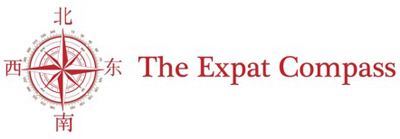
The Successful Expat is Agile
High performing expats have the ability to demonstrate both humility and agility. In fact, these characteristics are absolutely interdependent. When an expat is faced with a new or uncertain situation in international management, they have to be open to admit to not knowing what they don’t know, change longstanding mindsets, and quickly change tact or behaviours.
This ability to pivot and change leadership styles may prove initially difficult in cultures that exhibit high power distance or strong uncertainty avoidance. Teams in these situations generally prefer leaders who exert themselves over those that are unsure or flip-flop in a management situation. This is when humility again plays an important role. A leader who is open and transparent about their uncertainty and in fact, solicits advice from their team seeks what is best for the group and builds trust and relationships.
An effective expat has a high level of self-awareness and confidence to change their behaviours to adjust to their host culture. A culture steeped in 5000 years of history such as China’s won’t change for foreigners’ preferred styles and losing sight of this often derails expatriate executives during international assignments.
International hotel executives are highly transient; their postings usually last a couple of years before they get promoted or posted to a property in another country. One Food and Beverage Director, John, was selected to move from the United States to a hotel in China because of his long track record of success in the United States. He had a brashness that served him well in past postings but his style was counter to all the mentoring and coaching he received during his on boarding. John’s exact words were that “his job was to lead and to take the hotel’s Food and Beverage to the next level”. He was blinded by his previous success and his American employees’ positive response to his maverick style; his Chinese staff didn’t know how to respond or were inadvertently offended, resulting in low morale and costly turnover in his team. His inability to pivot and change his style eventually lead to his forced resignation six months later. John had false underlying beliefs and wasn’t able to pivot these beliefs; he didn’t believe he was the one who had to change.
In another case, Steve, was relocated to China to save a business that was neglected for the longest time. He is an American who had a long list of accomplishments and experiences with multiple consumer products companies in the United States and Europe but he had never been to, let alone operated in, China. His remit was to save the business, so he was bold with his business goals and strategy and his team. The initial implementation was bumpy and not well received by his team or his business partners. He received coaching to deal in this new foreign business environment. His big learning was to manage through relationships, not objectives. This was a major paradigm shift for Steve as he was used to working in organizations that were driven by achieving goals. Though it took time and with a couple of stop/starts, Steve heeded the advice and adjusted his style successfully.
Lawrence Chi is a coach for expatriates and cross-cultural consultant. His mission is to grow expatriates professionally and personally and to make organizations more international. Visit his website www.TheExpatCompass.com.



Leave a Reply
Be the First to Comment!